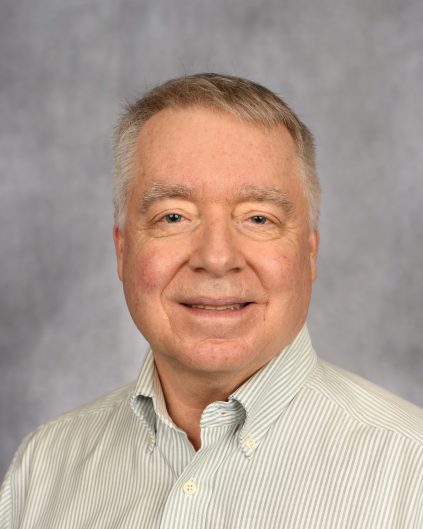Mike Coffin
Marine geophysicist Mike Coffin is a Research Professor in the School of Earth and Climate Sciences at the University of Maine; an Emeritus Professor at the Institute for Marine and Antarctic Studies (IMAS) at the University of Tasmania, Australia; and an Adjunct Scientist at the Woods Hole Oceanographic Institution. He has pursued an international career that reflects the boundless nature of the global ocean. Earlier in his career he was founding Executive Director of IMAS (2011-2015); inaugural Director of Research at the UK’s National Oceanography Centre and Professor at the University of Southampton (2007-2010); Professor at the University of Tokyo (2001-2007); Senior Research Scientist (1999-2001) and Research Scientist (1990-1999) at the Institute for Geophysics, University of Texas at Austin; and Research Scientist at Geoscience Australia (1985-1989). He has also held visiting positions at the University of Hawai’i at Mānoa (2002), Université de Strasbourg (2001), Geoscience Australia (2000), Universitetet i Oslo (1996, 1992), and Dartmouth College (1982). Mike has held leadership positions with the Australia-New Zealand International Ocean Discovery Program (2021-2022; 2018-2019) and the Integrated Ocean Drilling Program (2003-2005; 1999-2001).
Mike has four decades of experience leading and conducting basic and applied marine research. His current research focuses on oceanic plateau formation and deformation (Kerguelen Plateau/Broken Ridge, Ontong Java Plateau, Manihiki Plateau), transform plate boundary tectonics (Macquarie Ridge Complex), and undersea feature characterization (global), and involves Ph.D., Master’s, and undergraduate students. His scientific contributions encompass advances in understanding oceanic plateaus (large igneous provinces, or LIPs), subduction initiation, and rifted/transform margins, as well as solid Earth–environmental interactions. All his work originates in observational marine geoscience. As Chief/Co-Chief Scientist on 13 seagoing expeditions and a participant in 24 more, totaling >1,050 days at sea, Mike is perhaps the only scientist in the world to have led expeditions on ships of three nations (Australia, Japan, USA), the Ocean Drilling Program, and the Schmidt Ocean Institute.
Mike pioneered integrated, synergistic analyses of LIPs: oceanic plateaus, volcanic divergent margins, and continental flood basalts. His team has provided evidence for the lower mantle origin of many LIPS, and unravelled LIP-induced global environmental changes. Mike has progressed knowledge of subduction initiation by investigating Australia-Pacific plate interactions south of New Zealand along the Macquarie Ridge Complex (MRC). His team elucidated compression, transpression, and transtension along the MRC caused by changes in the pole of rotation between the two major plates, and developed new models for MRC evolution since seafloor spreading ceased at ~10 Ma. Undertaking the first comprehensive marine geophysical study of the conjugate East African-Madagascan rifted/transform margins, Mike and co-workers illuminated the complexities of intersecting transform and rifted margins, ~150 Myr of extension preceding breakup, deposition of salt, and extensive mass wasting along the rifted margin, thereby contributing to our understanding of rifted and transform margin development globally.
Mike’s long-term leadership to the ocean sciences community across four continents and eight institutions has been impactful, in particular building institutions and programs as inaugural Executive Director of IMAS, inaugural Director of Research at the National Oceanography Centre, and inaugural Chair of the Science Planning Committee, Integrated Ocean Drilling Program. The last was the largest international program in the Earth and ocean sciences, and among the largest in any scientific discipline. Mike has chaired and been a member of numerous national and international advisory boards, review panels, and committees, as well as served on the Australian Research Council’s College of Experts and the U.K.’s Natural Environment Research Council Peer Review College.
Mike has also devoted considerable effort to applying his understanding of the Earth beneath to sea to advance the United Nations Convention on the Law of the Sea’s (UNCLOS) rules-based governance of the oceans and their resources. Vis-à-vis the United Nations in general, Mike is currently a member of the General Bathymetric Chart of the Oceans (GEBCO) Sub-Committee on Undersea Feature Names (SCUFN), Intergovernmental Oceanographic Commission/International Hydrographic Organization, UNESCO; has served on Cook Islands, Federated States of Micronesia, Papua New Guinea, and Solomon Islands delegations to the United Nations Commission on the Limits of the Continental Shelf (CLCS) in New York; has also worked on CLCS submissions by Australia and Japan; and has assessed Australia’s UNESCO World Heritage listing submissions for Heard and McDonald Islands and for Macquarie Island.
His experiences at diverse institutions globally, and as Chief/Co-Chief Scientist of numerous research voyages have brought a profound multi-cultural, global perspective to his work in marine geoscience. He has used this experience in fostering diversity and gender parity in numerous contexts, including on scientific ocean drilling committees and in scientific parties of research expeditions.
Mike’s research has been published in high impact journals such as Nature and Science, and involves collaborations with universities, government, and industry locally, nationally, and internationally. His honors and awards include Distinguished Alumni Lecturer, Lamont-Doherty Earth Observatory, Columbia University in the City of New York (2022); International Prize of the Geological Society of Japan (2018); the Excellence Award for Extraordinary Achievement in 2017 Teaching Visit Program in China of the Australia Education Management Group (2017); Honorary Membership of the Golden Key International Honor Society (2015); TEDxHobart Speaker on Mass Extinction (2014); Fellowship of the Geological Society (London) (2008); and Distinguished Lectureship of the Joint Oceanographic Institutions/U.S. Science Advisory Committee (1994-1995).
Mike delivers many public presentations locally, nationally, and internationally. His research has garnered wide media coverage, including The Australian, Australian Antarctic Magazine, Australian Broadcasting Corporation, The Dallas Morning News, Discover, Discovery Channel, The Economist, Fishing Today, The New York Times, National Geographic, Nature, New Scientist, Oceanography, QantasLink Spirit, Science, and TEDxHobart.
Mike earned an A.B. degree (cum laude) from Dartmouth College (1978), and M.A. (1981), M.Phil. (1982), and Ph.D. (1985) degrees from Columbia University in the City of New York. NASA selected him as an astronaut candidate semi-finalist in 1984.

